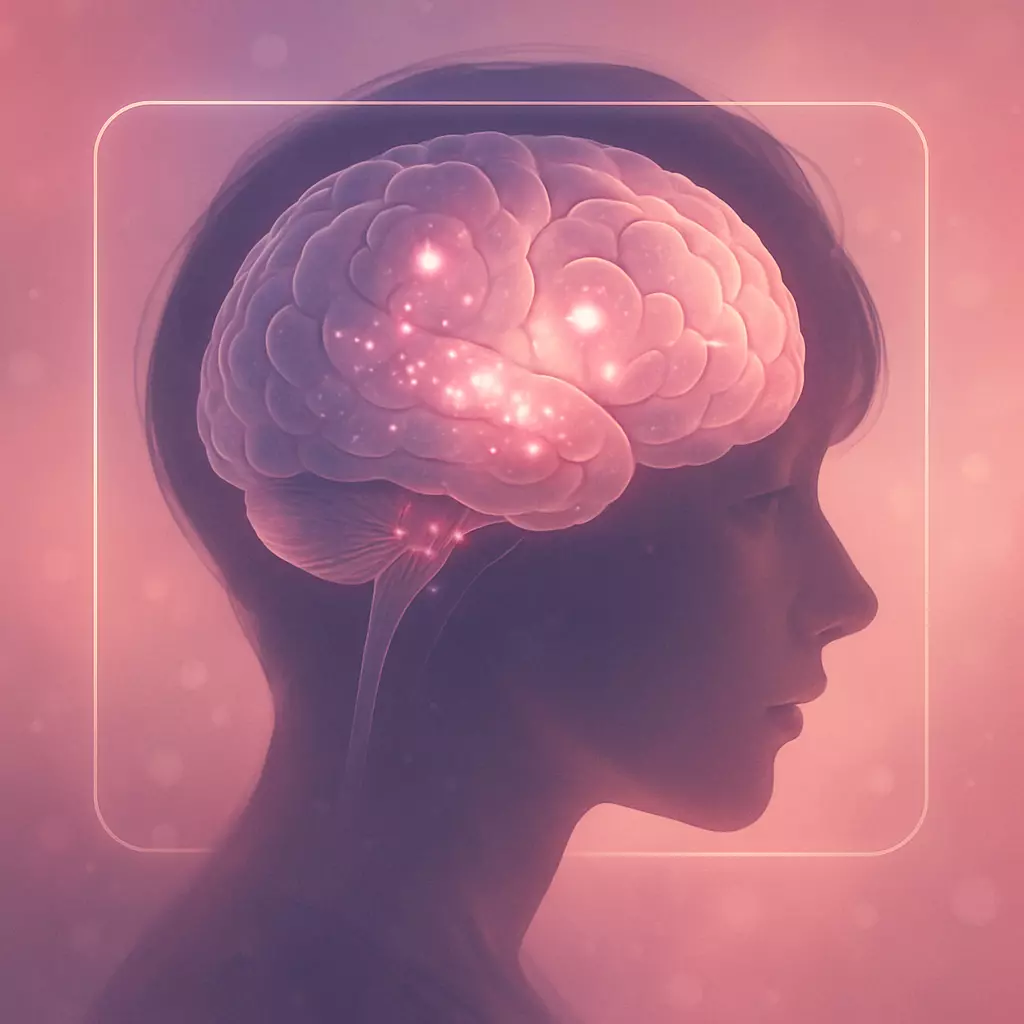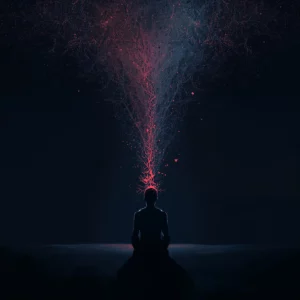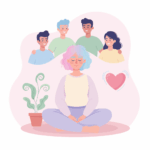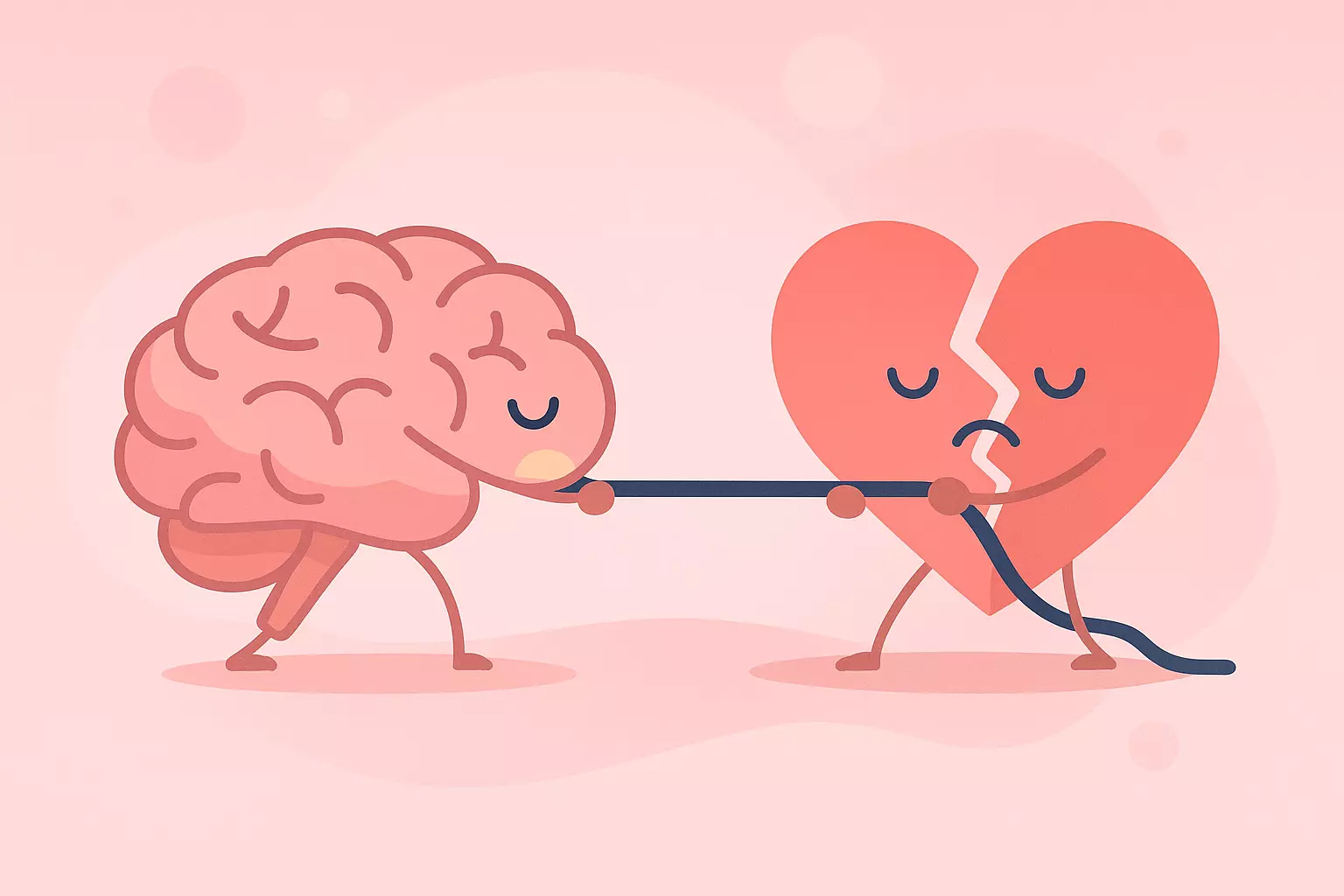Table of Contents
You know that moment when your phone buzzes and, just for a second, you hope it’s them? Even though it ended. Even though you promised yourself you’d stop hoping. That pull—sharp, irrational, impossible to swat away—feels like madness. But it’s not madness. It’s chemistry. It’s love addiction.
Love feels good for a reason. Biologically, it was designed to. And when it ends? It can feel like the world crashes in. Not because you’re weak, but because your brain just lost its favorite drug.
This is the science behind love addiction.
Why Does Falling in Love Feel So Addictive?
Falling in love isn’t just emotionally euphoric—it’s neurologically intoxicating. When we fall for someone, our brain floods with dopamine, the same feel-good chemical released by drugs like cocaine. Studies by Helen Fisher and others show that even seeing a photo of a romantic partner activates our brain’s reward system—especially the ventral tegmental area (VTA), loaded with dopamine neurons.
This reward system—called the mesolimbic dopamine pathway—is evolution’s way of reinforcing behaviors that promote survival. Romantic attachment helps ensure bonding and, from a biological standpoint, reproduction. But the feelings it generates are not mild encouragements. They’re fireworks. Cravings. Highs. Our brains treat romantic connection like a vital, euphoric goal.
That’s why love can feel obsessive. It’s not just in your heart—it’s in your brain chemistry.

Why Love Addiction Makes Letting Go So Hard
When a relationship ends, your brain doesn’t calmly adjust—it goes into withdrawal. The dopamine source is gone, but your craving remains. Heartbreak activates the same brain circuits as drug withdrawal—emotional pain, sleeplessness, anxiety, and obsessive thinking. Sound familiar?
You might:
- Feel compelled to text or check their social media
- Replay old conversations in your mind
- Experience physical anxiety or insomnia
These are not signs of emotional weakness—they’re withdrawal symptoms. And the science backs it up.

Why Breakups Hurt So Much (Science of Heartbreak & Healing)
Let’s examine breakups in: Biology of love & loss, Attachment styles, Rejection psychology, Closure, Rumination, Grief
Tap here to read more →Is Love Addiction a Real Condition?
It’s not in the DSM. But behaviorally and neurologically? It’s very real.
Researchers like Sussman and Moran note that love addiction often includes:
- Tolerance (needing more of them for the same emotional high)
- Withdrawal (distress when apart)
- Relapse (returning despite knowing better)
People stuck in toxic love cycles aren’t just struggling emotionally—they’re neurologically hooked.
Recognizing this pattern doesn’t reduce love to chemicals—it dignifies the struggle.

Heartbreak hurts like hell. And now we know why. The brain on love is a brain on fire—lit up with reward, flooded with meaning. When that fire goes out, the cold that follows isn’t weakness. It’s withdrawal.
But just as the brain can wire itself to crave a person, it can also unlearn. It takes time, tenderness, and sometimes help. But it does happen.
The science says so. And so do all the people who’ve stood where you are—aching, rewiring, healing—and walked forward anyway.
FAQ
Q1. What is love addiction and how does it differ from normal romantic feelings?
Love addiction refers to obsessive, dependency patterns in relationships that mirror substance addiction—featuring tolerance, withdrawal, cravings, and relapse. Unlike typical romance, love addiction causes distress when separated and interferes with well‑being.
Q2. Why does breakup pain feel as intense as quitting a drug?
During a relationship, your brain floods with dopamine and reward chemicals. When it’s over, your brain experiences a sudden drop in these neurotransmitters, triggering withdrawal‑like symptoms such as anxiety, insomnia, and obsessive thoughts.
Q3. Can love addiction be diagnosed and treated?
While it’s not listed in the DSM-5, researchers consider love addiction a behavioral addiction based on neurochemical evidence. Treatment often involves therapy techniques used for addiction—such as cognitive-behavioral therapy, boundary-setting, and support groups—to help rewire dependency patterns.
Q4. How can understanding the biology of love addiction help in healing?
Recognizing the biological roots of love addiction—such as dopamine-driven cravings—helps reframe heartbreak as a physical process, not weakness. That awareness can reduce shame, validate your experience, and empower you to pursue science-based recovery steps.
Scientific Sources
-
Fisher, Aron & Brown (2003): Romantic love: an fMRI study of a neural mechanism for mate choice
Key Finding: Viewing a beloved’s photo activates the ventral tegmental area (VTA)—rich in dopamine neurons—mirroring the brain’s drug‑reward circuitry.
Why Relevant: Direct neuroimaging evidence linking intense love (‘addiction to a person’) to the same reward centers implicated in addiction.
https://www.ncbi.nlm.nih.gov/pmc/articles/PMC4861725 -
Fisher, Aron, Mashek & Brown (2010): Intense, Passionate, Romantic Love: A Natural Addiction?
Key Finding: Romantic love consistently activates mesolimbic dopamine structures, sharing pathways with drug addiction; love also modulates craving pathways, sometimes attenuating drug‑cue responsiveness.
Why Relevant: Demonstrates love addiction is not metaphorical—it’s rooted in literal brain addiction mechanisms.
https://www.ncbi.nlm.nih.gov/pmc/articles/PMC4861725 -
Sussman & Moran (2021): Addicted to A Lover: Conceptualizing Romantic Love and Breakups through an Addictive Lens
Key Finding: Dysfunctional love mimics substance‑use addiction criteria like inability to quit, withdrawal‑like distress, and relapse behavior.
Why Relevant: Provides psychological and clinical validation that love addiction is a disorder with addiction‑like features.
https://abpp.org/newsletter-post/addicted-to-a-lover-conceptualizing-romantic-love-and-breakups-through-an-addictive-lens/
- Gay Men Post-Breakup Friendship: The Hidden Benefits and Emotional Blind Spots of Staying Close

- Women and the Emotional Cost of Staying Friends with an Ex: Healing, Safety, and Letting Go

- Men and Staying Friends with an Ex: The Hidden Control Strategy Behind Closure, Attachment, and Fear of Loss

- Exes as Friends: Myth, Miracle, or a Mental Breakdown in the Making?

- No Contact Healing: Powerful Habits That Make Breakup Recovery Stick

- Ready to Date Self-Audit: Powerful Green Flags & Values Check for Love

- Reintroducing Contact After No Contact: Powerful Signs, Timing & Likely Outcomes

- Queer Folks Dating After a Breakup: Powerful Signs You’re Healing Without Losing Yourself

- Transgender Healing After Heartbreak: Powerful Signs of Safety, Care & Affirmation


Leave a Reply